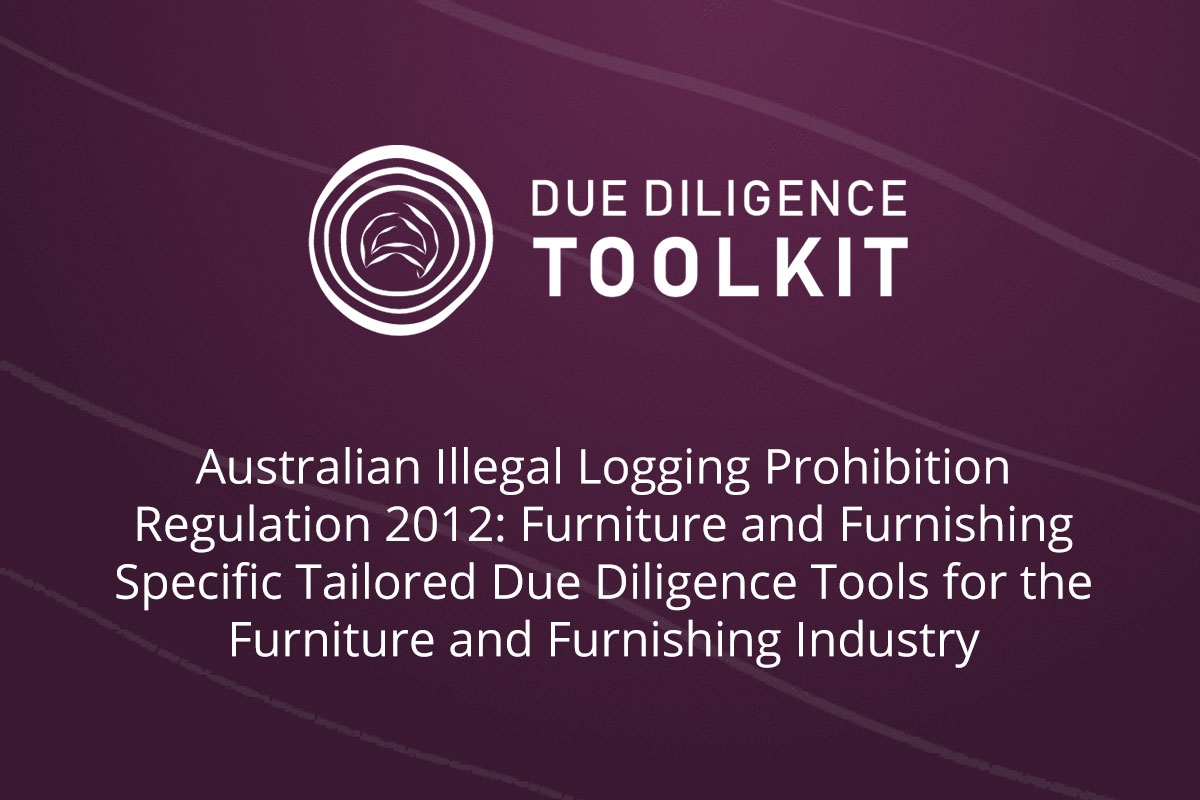
Australian Illegal Logging Prohibition Regulation 2012: Furniture and Furnishing Specific Tailored Due Diligence Tools for the Furniture and Furnishing Industry
WHY?
In recent months the AFA has held a number of meetings with the Department of Agriculture and Water Resources (DAWR) following the first twelve months of auditing of the due diligence requirements. Alarmingly the AFA learnt that 76% of furnishing related companies failed the audit.
‘This is an alarming statistic and requires immediate action,’ says AFA CEO, Patrizia Torelli.
IMPORTANT FAST FACTS
· Furniture and furnishing importers are made up of many groups within the furniture industry.
· Raw material suppliers import solid and composite timber products and timber components to supply Australian furniture and furnishing manufacturers.
· Many importers businesses solely rely on importing and wholesaling furniture products.
· A large number of Australian manufacturers import furniture to supplement their locally manufactured ranges.
· Some small and most medium to large retailers also directly import furniture.
· Regulated timber products are imported at every level of the furniture industry and the illegal logging prohibition regulation impacts accordingly on every level of the industry.
· The supply chain of regulated timber products within the furniture industry is very complex, much more so than the paper and timber industries. Along with the barriers of language and communication difficulties with overseas suppliers, the lack of targeted information to suppliers and importers in the furniture industry has resulted in limited knowledge of the regulation and understanding of the requirements by importers and their suppliers.
The Illegal Logging Prohibition Regulation 2012, the Illegal Logging Prohibition Amendment Regulation 2013 and associated Regulations impose due diligence requirements on importers of most furniture and furnishings made from or containing wood. Importers of furniture and furnishings (Chapter 94 tariff codes) comprise 50% of the importers of Regulated Timber Products.
Whilst Departmental guidance and industry toolkits are available the AFA has lobbied for tools that are better tailored to importers of wood furniture and components.
‘There is a clear need for a tailored Due Diligence Toolkit for furniture importers in Australia particularly with the increase in the number of importers of small to medium quantities of furniture and furnishing products,’ continues Ms Torelli.
Capacity building content for suppliers of furniture in key overseas manufacturing countries are essential as the AFA reports a very limited understanding of the Australian requirements amongst these important stakeholders and an increase of supply of illegally harvested products to unwitting Australian importers.
Co-investment by Government will assist the AFA with critical tools development and will greatly assist the understanding of, and compliance with, the Regulations.
The AFA has also sought and received the support of key alliance partners in the development of the Due Diligence Toolkit.
The annual sector turnover is approximately $32 billion and approximately 250,000 people are directly employed along the industry value chain with a further 200,000 jobs supported through flow-on economic activity.
Each year this industry uses around 4.8 million m3 of sawn timber and 1.5 million m3 of wood-based panels.
The Due Diligence Toolkit is set for release in October 2017.
